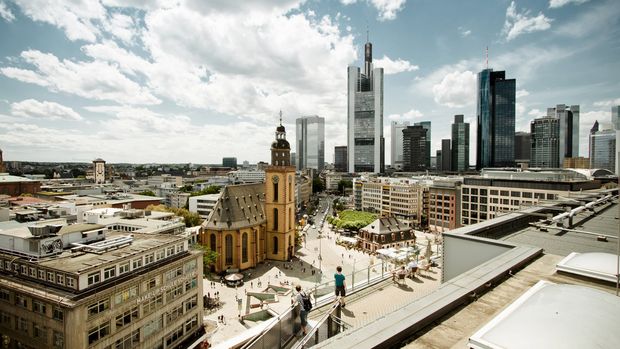Science Year 2015
Science Year 2015 focused on the City of the Future
Cities are the most popular place to live for most people today. The number of urban dwellers is increasing daily. Life in the city is attractive, not least thanks to the results of science and research. Scientific findings will become even more important for people in cities to lead autonomous lives in future.

The internationally renowned urban planner Jaime Lerner once said that cities are the solution, not the problem. This was the rationale of 'Science Year 2015 – City of the Future'. Cities are places of innovation because they are in constant development. They can be models and pioneers of sustainable development in ecological, social and economic terms.
Today's urban population accounts for three quarters of energy consumption and generates 70% of anthropogenic greenhouse gases. The concept of sustainable living can only be realized if it is embraced by urban dwellers. This is where science and research come in. But scientific development must match human needs. 'Science Year 2015–City of the Future' had the aim to develop new formats of citizen participation which demonstrate how urban environments can be organized jointly with researchers.
Areas for participation include the following: Cities will adapt to climate change, secure their energy supply and enable mobility for everyone. Urban gardening will increasingly contribute to the production of food for a healthy diet. Innovative housing concepts are needed to provide attractive living conditions for as many people as possible.
Cities have been a blueprint of the prevailing social and political structures since ancient times. Urban life reflects the grand challenges of the future: Adaptation to climate change, energy supply, secure employment, affordable housing, sustainable mobility, and demographic change.
New developments are trialled in cities. Researchers and policy-makers must work hand in hand in this process. The Strategic Research Agenda of the National Platform for the City of the Future is based on this principle. The aim is to promote urban restructuring to create CO2-neutral, energy-efficient and climate-adapted cities. The agenda is the result of the High-Tech Strategy for Germany. Experts from local authorities, science, industry and politics were involved in drafting this strategy on the Federal Government's initiative.
The 2015 Science Year demonstrated how research can support this process: Experts will provide useful knowledge and show new ways to develop the City of the Future together with the local population.
Diverse developments occur simultaneously in cities, sometimes moving in opposite directions and causing conflict. Urban communities include large numbers of people whose lives and living environments intersect. It is therefore very important to take a holistic perspective and consider as many aspects of urban life as possible. More than any other living environment, cities enable direct exchange. We must take advantage of this opportunity. Welcome to 'Science Year 2015 – City of the Future'.

